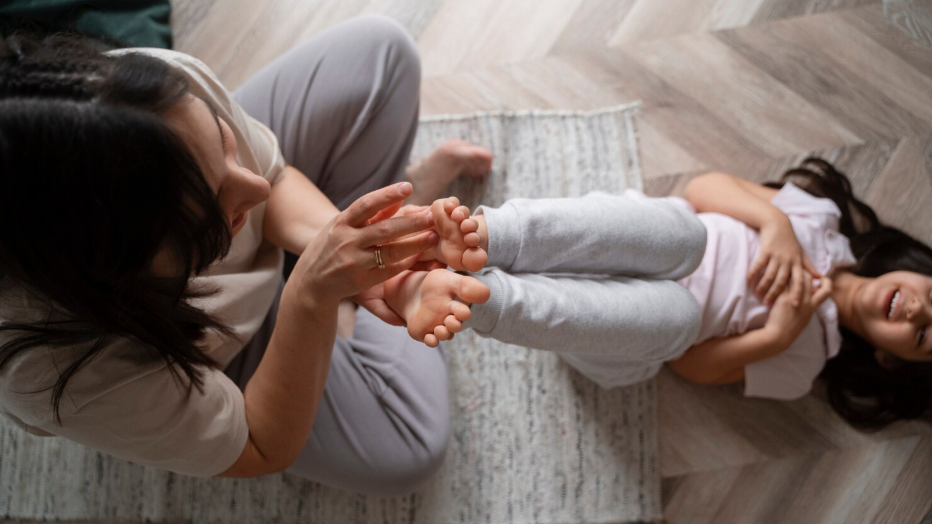School anxiety is a stress response triggered by academic, social, or environmental pressures related to school life.
Students may experience overwhelming fear, physical discomfort, and emotional distress tied to:
- Academic performance
- Peer relationships
- Social expectations
- Fear of failure or judgement
According to Beyond Blue, 26.3% of Australians experience an anxiety disorder during their life. Many symptoms begin during school years.
What types of school anxiety affect students?
The International Board of Credentialing and Continuing Education Standards (IBCCES) defines three primary types:
1. Social Anxiety
Fear of judgement, embarrassment, or rejection in social situations.
This affects:
- Class participation
- Public speaking
- Group work
- Recess or peer interaction
2. Test Anxiety
Intense worry before or during academic assessments.
Common symptoms include:
- Memory blocks
- Trouble focusing
- Panic during exams
- Emotional shutdown or tears
3. School Refusal
Persistent distress about attending or staying at school.
Signs include:
- Meltdowns before school
- Physical complaints in the morning
- Attempts to avoid or leave school
- Strong emotional resistance
What causes anxiety in school-aged children and teens?
Common triggers include:
- Bullying or exclusion
- Learning difficulties
- Academic pressure
- Perfectionism
- Emotional trauma
- Family stress or instability
School anxiety may also indicate a broader anxiety disorder such as:
- Generalised Anxiety Disorder (GAD)
- Social Anxiety Disorder
- Panic Disorder
- Obsessive-Compulsive Disorder (OCD)
What are the signs and symptoms of school anxiety?
Academic indicators:
- Decline in grades
- Avoidance of homework or tasks
- Procrastination
- Poor classroom engagement
Physical symptoms:
- Headaches or stomach aches
- Dizziness or nausea
- Muscle tension
- Sweating or frequent illness
Emotional changes:
- Irritability or anger
- Tearfulness
- Low self-esteem
- Excessive worrying
Social withdrawal:
- Avoiding peers
- Isolating at home
- Reluctance to attend social events
- Selective mutism in severe cases
Panic or perfectionism:
- Panic attacks before school
- Fear of mistakes
- Overchecking schoolwork
- Distress when goals aren’t met
How can parents support children with school anxiety?
1. Be empathetic and calm
Validate their feelings without minimising them. Offer a safe, open environment for communication.
2. Build consistent routines
Help them establish predictable schedules for sleep, meals, and study time.
3. Promote small, achievable goals
Break down tasks to reduce overwhelm. Celebrate effort and progress.
4. Collaborate with teachers
Inform school staff and develop strategies for managing anxiety in class.
5. Seek professional help
Psychologists can assess and treat underlying anxiety using evidence-based approaches like:
- Cognitive Behavioural Therapy (CBT)
- Acceptance and Commitment Therapy (ACT)
- Exposure therapy
- Parent–child interaction therapy
When should you seek help for school anxiety?
You should consider professional support if:
- Symptoms persist for weeks or worsen over time
- Your child avoids or refuses to attend school
- Physical symptoms appear without medical cause
- Their academic or social functioning is declining
- You feel unsure how to support them at home
FAQs
What is school anxiety?
School anxiety is a form of stress or fear tied to school-related tasks or environments. It often involves emotional, physical, and behavioural symptoms.
What are the main types of school anxiety?
The three primary types are social anxiety, test anxiety, and school refusal. Each type has distinct symptoms and triggers.
What causes school anxiety in children?
Common causes include academic pressure, bullying, learning challenges, social dynamics, or underlying mental health conditions.
What are signs that my child might have school anxiety?
Watch for avoidance, drop in grades, irritability, physical complaints, and reluctance to attend or remain at school.
How can school anxiety be treated?
Treatments include psychological therapy, school accommodations, relaxation techniques, parent guidance, and sometimes medical support.
Can school anxiety go away on its own?
Mild anxiety may improve, but persistent symptoms often require professional support to prevent escalation.
Concerned your child is struggling with school-related anxiety?
You’re not alone. At Mind Care, our team supports children, teens, and families with tailored, evidence-based therapies to address school anxiety and related emotional difficulties.
Contact us today to schedule a confidential consultation and start building confidence and emotional resilience—together.











